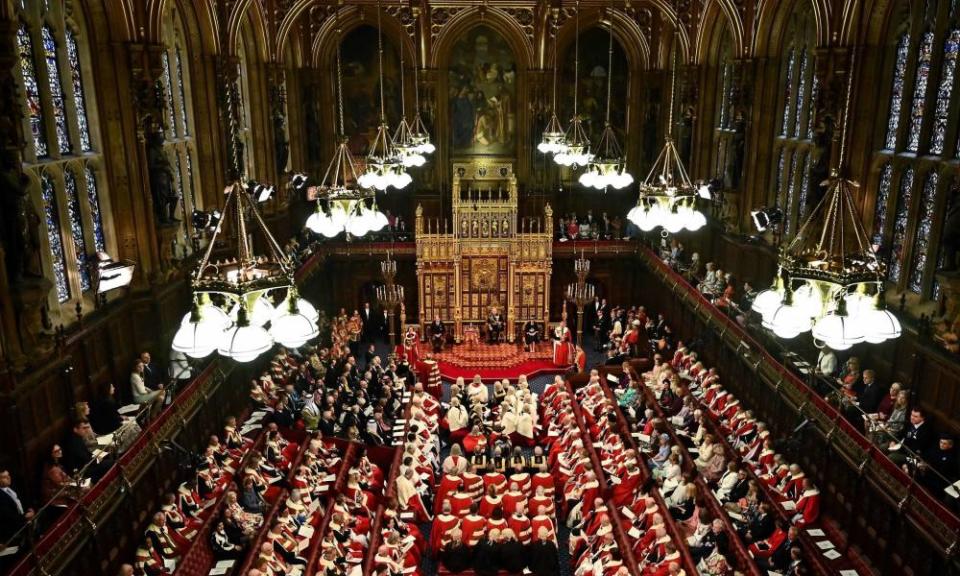Why it’s time for Labour to back proportional representation

For most people, this is turning out to be the most difficult decade we have lived through.
Outside of the top 10%, almost everyone else has been set back to some degree by the pandemic and we emerge from it beset by multiple crises likely to last the next 10 years.
Beneath the cost of living crisis, there is a silent mental health crisis and, underlying that, a housing crisis that we’ve talked about for a decade but seen no meaningful action from parliament to tackle it.
That brings us to another crisis – of politics.
Britain is slipping into the danger zone and people are getting worried because they see no prospect of politics-as-usual pulling us out. Just when we needed a grown-up government, we got one that is not governing but campaigning for its own survival by inflaming divides and starting fights.
This is a deeply dysfunctional government and the good news coming out of Thursday’s byelections is that we now have a route to removing it. That might be more likely to happen if we also start talking about reforming Britain’s deeply dysfunctional system of government.
Today’s crises have been building for a long time.
The poorest parts of our country were not ready for the pandemic. Decades of deregulation, under all governments, stripped them of resilience and left people without the basics: in jobs where they can’t go home if unwell; in homes that are unsafe; in communities with no affordable public transport.
This inequality is no accident. It is the product of a political system that places too much power in the hands of too few. Britain is hard-wired to perpetuate it.
If our political system was a computer, we would have long since taken steps to prevent it being hacked
First-past-the-post, combined with the whip system, takes the votes of millions and turns them into inordinate power for a small Whitehall elite. Government MPs troop through the lobbies rubber-stamping their decisions. Any ability to mitigate the worst of them has long since been removed from local government.
This over-concentration of power in one London postcode makes it far too easy for vested interests to manipulate political decision-making. What else explains the extent to which the political elite have been captured by the mantra that the market solves everything?
In the rare moments when backbench MPs have power, such as in the recent no-confidence vote, the inner workings of this corrupt system are momentarily revealed. When Nadine Dorries warned rebel MPs that the Tory donors weren’t happy and might withdraw cash from their constituencies, she wasn’t setting out to provide the perfect diagnosis of our political malaise – but that is what she spectacularly did.
Some of these donors are hostile to the notion of Britain as a fairer, more equitable country. Others, as the Ukraine crisis revealed, are potentially hostile to Britain. If our political system was a computer, we would have long since taken steps to prevent it being hacked.
Britain’s antiquated political system is never going to solve our problems; rather, it is a root cause of them.
The time has come for a complete rewiring of Britain – and for my own party to talk openly and seriously with others who feel the same.
Given the seriousness of the country’s situation, the next general election needs to bring a change of direction. The risk is, if our political parties carry on with business-as-usual, it may not happen. The Tories are masters at making first-past-the-post work for them. However, if the other parties are open to a new approach, Thursday’s results suggest a change of government becomes not just achievable but highly likely.

To be clear, I am not advocating any form of electoral pact. I think democracy requires that people in all constituencies have a full choice of political parties.
What I am proposing is cooperating now on a programme for political reform. At a grassroots level, Labour is moving towards support for PR. If the party as a whole were to embrace it, it paves the way for an agreement with other parties on wider reforms: an elected senate of the nations and regions to replace the Lords and maximum devolution of power out of Westminster.
We must make power flow differently throughout our land, giving individual people and places more agency. This idea, and the open discussion about it ahead of an election, could resonate with voters as a more honest and collaborative way of doing politics and create real optimism about the prospects for change. And, in turn, it could lay the right foundations for the reforming government the country needs.
There is no getting away from the fact that Britain needs social reforms on a scale similar to those needed after the second world war. My starter for 10 would be: good housing as a human right in UK law and a major council house building programme to make it real; a higher basic minimum income for all and the end to insecure employment; social care on NHS terms and a substantial increase in mental health spending; and the re-nationalisation of rail and re-regulation of bus services.
Whatever the precise policy programme, the enormity of the change needed can’t be denied and will require consensus and political foundations to sustain it for a generation or more.
When I speak out, some always seek to brand it as a leadership bid. This is nothing of the sort. I am doing this because I want Labour to seize the moment. We now have the chance to make Keir Starmer our next prime minister and change the course of the 2020s. Let’s take it.
Andy Burnham is the mayor of Greater Manchester

 Yahoo Movies
Yahoo Movies 
